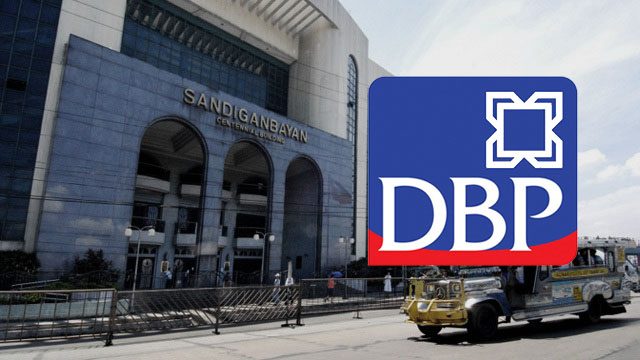SUMMARY
This is AI generated summarization, which may have errors. For context, always refer to the full article.

MANILA, Philippine – The Sandiganbayan dismissed an 18-year-old case filed against former officials of the Development Bank of the Philippines (DBP) and private executives over a multimillion-peso loan during the Marcos administration.
The Sandiganbayan 5th Division ruled that the Office of the Solicitor General, which served as counsel for the Presidential Commission on Good Government (PCGG), was unable to prove that the P57.39-million loan given to Atlas Textile and Development Incorporated in 1979 was a behest loan.
Filed in 2000, the complaint stemmed from the findings of the Presidential Ad-hoc Fact-Finding Committee on Behest Loans stating that Atlas Textile was “undercapitalized and undercollateralized,” having offered assets valued at only P48.66 million as collateral.
The Sandiganbayan, however, said that the loan was not “undercollateralized” as the DBP’s only requirement was that the ceded assets be worth at least 80% of the entire loan.
“It is clear that the security offered by Atlas for the loan accommodation applied for is sufficient to safeguard the interest of the DBP in case of non-payment or default in payment,” the anti-graft court said.
The Sandiganbayan also noted that it was the Marcos administration’s policy then to encourage the textile industry to modernize its equipment.
“It is noteworthy that the DBP, as a government banking institution, is mandated to assist critical industries and sectors,” the court said.
The Sandiganbayan added there was no proof that the private dependents were connected to the family of the late dictator Ferdinand Marcos, thus the term “ill-gotten wealth” was not applicable.
“For failure of the plaintiff to present evidence showing corruption, betrayal of public trust, and unjust enrichment on the part of the defendants, its case must necessarily fail. Mere allegations are not evidence and absence of evidence negates liability,” the court said.
“The pursuit should not be mindless, as to be oppressive towards anyone. Due process requires that there be sufficient competent evidence of the asset being ill-gotten wealth.” – Rappler.com
Add a comment
How does this make you feel?
There are no comments yet. Add your comment to start the conversation.